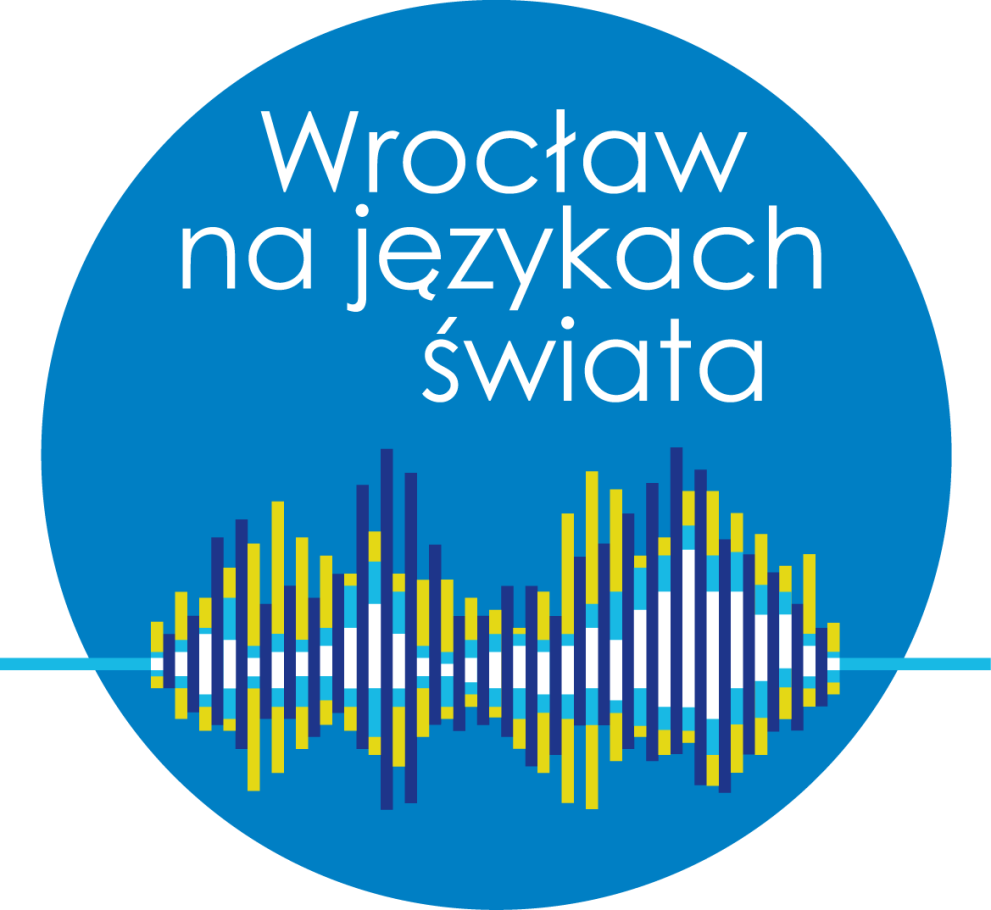
Wroclaw on Tongues of the World (Wrocław na Językach Świata), implemented by the Wroclaw Integration Centre, is an innovative social programme allowing local volunteers from Wroclaw to teach Polish to migrants free of charge.
The programme supports migrants who may not be able to attend paid language courses, but also helps break down cultural barriers and allows newcomers and volunteers to co-create a more multicultural Wroclaw.
‘To be on tongues’ is a Polish idiomatic expression which means ‘to be talked about by many people’.
Project Goal
The aim of the programme is to improve the language skills of foreigners living in Wroclaw, as well as to involve local residents in the social integration of newcomers.
With a population of over 670 000, Wroclaw is the fourth most populous city in Poland. Each year, more than 100 000 people of different nationalities move to the city on long-stay permits. They take up work or studies, yet often do not speak Polish. This presents a barrier to their everyday life. Still, up until 2016, foreigners could only enrol in paid Polish language lessons organised by commercial language schools. Many newcomers could not afford these lessons, even when the classes were partially subsidised by various projects.
Involving local Wroclaw residents as volunteer teachers was an innovative solution allowing Wroclaw to provide free language tuition for hundreds of people each year.

How it works
The Wroclaw Integration Centre – a unit of the Municipality of Wroclaw, created an online platform for the programme Wrocław na Językach Świata, where adults from Wroclaw declare their willingness to help migrants learn Polish. Using an application form, foreigners register as students free of charge. Both volunteer teachers and migrants can choose the venue and dates for their language meetings in the application forms. The creation of study couples or groups is handled by the staff of the Wroclaw Integration Centre who coordinate the language meetings and provide technical support.
In terms of educational resources, a library with materials for teaching Polish as a foreign language was set up at the Wroclaw Integration Centre, where volunteers can borrow handbooks, workbooks and board games free of charge. Volunteer teachers can also benefit from free courses in the methodology of teaching Polish as a foreign language. These trainings are periodically organised by professional language instructors.
The project also relies on partnerships with public and private entities. Such project partner organisations have provided more than 60 venues where ‘language tandems’ and study groups meet free of charge. The venues include restaurants, cafes, NGO headquarters, premises provided by churches and religious groups, as well as by businesses and the local government, including 15 branches of the Tadeusz Różewicz Municipal Public Library. The meetings can also take place online.
Results
Since the start of the project in 2016 up to the end of 2023, about 5 000 foreigners from approximately 100 countries, and about 1 500 volunteer teachers have participated. Study couples and groups have met about 24 000 times, clocking over 35 000 hours of learning.
Students have noted that in addition to studying the Polish language, the programme has allowed them to feel like they are part of the local community. They have said that the project has been a way to establish contacts in the private and professional spheres more easily, understand the nuances of Polish culture, and receive emotional support (the latter particularly relevant to those displaced by the war against Ukraine). Finally, students have noted they appreciated that the volunteer teachers took the time to prepare and teach Polish, which helps build mutual trust.
Local residents of Wroclaw, on the other hand, have said that the programme not only allowed them to do something good, but also to get to know other cultures, traditions and languages. Initial 'teacher-student' relationships have reportedly led to lasting friendships.
Finally, Wroclaw residents, and private and public entities all work together with the local government to implement the programme. This model helps strengthen partnerships and is meant to deepen the trust in the local community and the Wroclaw government.
Evaluation
The institution implementing the project does not formally evaluate it and does not test to what extent foreigners have learnt Polish. However, the project's statistics suggest it is popular with Wroclaw inhabitants. The programme was also a finalist in the international competition 'Innovation in Politics 2019', nominated in the 'local community' category.
Who benefits
The programme benefits both the migrants and the local volunteer teachers taking part in it. It is open to all adult residents of Wroclaw regardless of their age, gender, origin, religion or sexual orientation. The program has so far included participants aged between 18 and 70 years, the majority of them being women.
Funding and resources
The programme is financed by the Municipality of Wroclaw. Municipal funds are earmarked, for example, for the remuneration of the project staff (2 people), training courses for volunteer teachers on the methodology of teaching Polish as a foreign language, information and promotion campaigns on social media, educational materials for learning Polish at various levels (handbooks, workbooks and board games), and basic stationery supplies.
About this good practice
- Project dates
- Geographic area
- Poland
- City
- Wroclaw
- Organisation
- Wrocławskie Centrum Integracji
- Website
- Contact person
- Adrian Rode
- Position
- Project Coordinator/Chief Specialist
Details
- Original source
- Posted by
